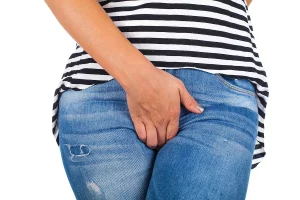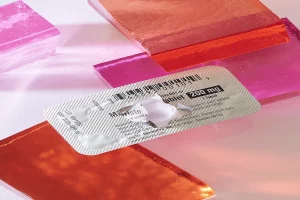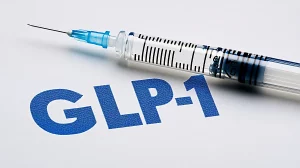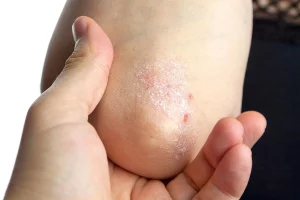HORMONAL. Moody. Emotional. These words have long (always) been associated with being female. Women are constantly in flux, overwhelmed and unbalanced by their feelings. Men, on the other hand, are stable and grounded. So goes the thinking that’s become so prevalent that we’ve even seen Hilary Clinton’s leadership capacity questioned in terms of whether we can trust a woman with all of those, you know, crazy hormones going on.
However, testesflash: men have hormones too. Their testosterone levels fluctuate in accordance with daily and seasonal changes. They have higher testosterone levels in the morning, hence morning wood, and during the summer. Like women, men experience hormone cycles that impact how they feel. And, as they get older, their testosterone levels make a slow but steady descent. Not only that — men have estrogen in their bodies, and women have testosterone too! Science.
There were a slew of stories last week on testosterone therapy for men, to combat what’s called Low T, which, sounds more like a kind of shirt from American Apparel and so very marketing-ready. These stories addressed, with varying degrees of concern and cockiness, the news (why is this news?) that men have hormones too and go through, yes, “manopause.”
Testosterone therapy was originally approved to treat only relatively rare, but serious clinical, health issues such as hypogonadism, which is when the body does not produce enough testosterone of its own. But, never one to let lack of actual illness get in the way of a profit, the pharmaceutical industry soon set its sights on getting AndroGel — the panacea Big Pharma is pushing as the solution — in every man’s bathroom cabinet. Campaigns make claims that it solves fatigue, low libido, weight gain, and myriad other complaints normally filed under “getting old.” Of course, the problems associated with getting on in years tend to be exacerbated by unhealthy habits, lack of sleep, and too much stress — the kind of stuff that would cause more men now than ever before to raise their hands in acknowledgment.
The flexibility and vagueness of the symptoms of Low T have a lot in common with what women have come across for years with menopause. Just as women’s periods don’t just one day switch off, neither do men’s bodies act in accordance with the medical body-as-machine analogy. The reasons behind the need for additional synthetic testosterone, however, are gender-specific and advertising has relied heavily on masculinity stereotypes such as strength, endurance, power, drive — what it feels like “to be a man” — to encourage sales. Both men and women are conditioned to seek to regain and sustain the benefits of youthfulness.
Look how far we’ve come: Recognizing the hormone cycles and changeability that men experience, only so we can pathologize it.
It’s not much of a surprise, or a stretch, if you consider the values that contemporary society and culture hold in high esteem. Being constant, consistent and unchanging seems attractive when you consider our long hours and long weeks of work, the demands of modern life, the later and later point of possible retirement. The latest sci-fi young adult book-to-movie conversion ‘The Giver’ presents just that — a world converted to “sameness.” And how does that work out for them? If you’re anything like me, you’ve been re-watching some ‘Mork and Mindy’ since Robin Williams’ passing. Mork’s people, the Orkans, as you’ll recall, have a law against emotions, and Mork rejects this in favor of humanity.
Perpetual youth comes with a price, of course. Testosterone therapy carries cardiac and cancer risks, along with the alarming potential for accidental transference of the gel to a child’s skin causing enlarged genitals, unusual hair growth, and early signs of puberty. Once a man starts boosting his testosterone his own body will shut down production, meaning he’ll be stocking up at the pharmacy for the rest of his life. Did I hear the cha-ching of a cash register opening? Lifetime drugs (including newer preventative medications like statins) are the big wins of the pharmaceutical industry.
The problem is, there’s little evidence to show that testosterone therapy will do what it has promised. The list of side effects provided suggest it could do the complete opposite for some, as well as bringing on a bunch of second adolescence aggravation. When a guy is 40 and he’s tired and low, it might just be because he’s drinking too much wine and eating too much pizza. Studies have shown losing weight, for one thing, increases testosterone levels far more effectively and significantly than testosterone supplementation.
Plus, as one story put it, “less stress equals more T” – so when those pharma ads are getting under your skin, just remember they’re simply making more patients ready to slap Androgel on theirs.

















